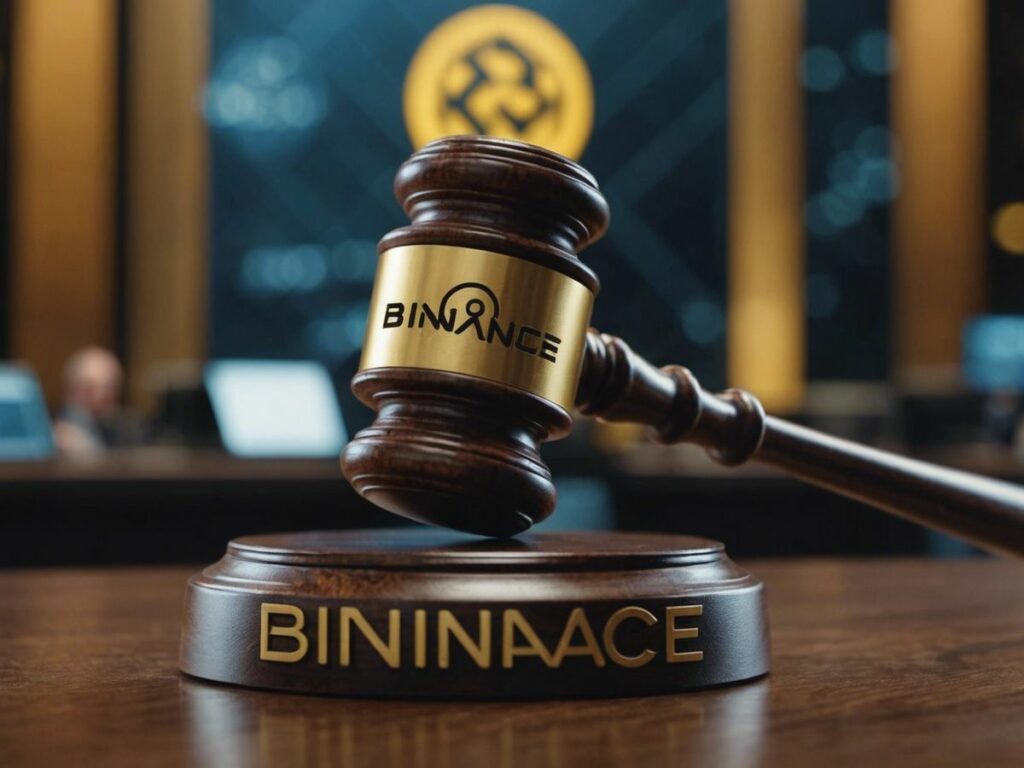In 2023, the U.S. Securities and Exchange Commission (SEC) initiated lawsuits against the world’s three largest crypto exchanges – Binance, Coinbase, and Kraken – marking the beginning of a stringent regulatory era for the previously unrestrained crypto industry. These legal actions have significant implications for the future of cryptocurrencies and the exchanges that trade them.
Key Takeaways
- The SEC has filed lawsuits against Binance, Coinbase, and Kraken, accusing them of various regulatory violations.
- The lawsuits have led to significant market reactions and withdrawals from these exchanges.
- The future of the crypto industry in the U.S. is uncertain, with potential shifts towards offshore operations and decentralized exchanges.
SEC vs. Binance: Accusations and Market Impact
On June 5, 2023, the SEC filed a lawsuit against Binance, accusing the exchange of several violations, including running an unregistered exchange, selling Binance-owned cryptos BNB and BUSD, and using customer funds for its own interests. The allegations against Binance are severe, drawing parallels to the now-defunct FTX exchange.
As of late November 2023, the lawsuit remains unresolved. The SEC is investigating whether Binance and its founder, Changpeng Zhao (CZ), had a “backdoor” to control assets on the Binance.US platform. Binance has responded by filing a motion to dismiss the lawsuit. The case is expected to extend into 2024, with Binance agreeing to pay a $4.3 billion fine to settle charges from other U.S. regulatory bodies.
SEC vs. Kraken: Commingling Complaints
On November 20, 2023, the SEC filed a complaint against Kraken, accusing the exchange of operating as an unregistered securities exchange and commingling customer funds for operating expenses. Kraken has denied the charges and intends to defend itself in court. This is not the first time Kraken has faced SEC action; in February 2023, it agreed to cease its crypto staking services and pay $30 million in fines.
SEC vs. Coinbase: Compliance Issues
A day after the Binance lawsuit, the SEC charged Coinbase with operating as an unregistered securities exchange and broker. The SEC also took issue with Coinbase’s staking-as-a-service program and its marketing campaigns. Coinbase has responded by attempting to register parts of its business with the SEC, but claims the regulator has been uncooperative. The lawsuit is expected to continue into 2024.
Market Reactions and Future Implications
Despite the lawsuits, the cryptocurrency market has shown resilience. Bitcoin (BTC) and Ether (ETH) quickly rebounded from initial sell-offs. However, cryptocurrencies identified as securities by the SEC, such as BNB, ADA, SOL, MATIC, and ATOM, experienced selling pressure.
| Binance vs. SEC | Coinbase vs. SEC |
|---|---|
| Solana (SOL) | Solana (SOL) |
| Cardano (ADA) | Cardano (ADA) |
| Polygon (MATIC) | Polygon (MATIC) |
| Filecoin (FIL) | Filecoin (FIL) |
| Cosmos (ATOM) | – |
| Sandbox (SAND) | Sandbox (SAND) |
| Decentraland (MANA) | – |
| Algorand (ALGO) | – |
| Axie Infinity (AXS) | Axie Infinity (AXS) |
| Coti (COTI) | – |
| – | Chilliz (CHZ) |
| – | Flow (FLOW) |
| – | Internet Computer (ICP) |
| – | Near (NEAR) |
| – | Voyager (VGX) |
| – | Dash (DASH) |
| – | Nexo (NEXO) |
The Road Ahead for Crypto Regulation
The crypto industry is bracing for more stringent regulations. Experts suggest that U.S. crypto companies might move offshore, and centralized exchanges may only list Bitcoin and Ether while other tokens are traded on decentralized exchanges. There is also a push within the industry for cryptocurrencies to be regulated by the Commodity Futures Trading Commission (CFTC) rather than the SEC.
Understanding the SEC’s Role
The SEC aims to regulate cryptocurrencies similarly to the stock market, ensuring that crypto companies provide truthful information and protect investors. Established in 1934 after the stock market crash of 1929, the SEC’s mission is to restore public confidence in the financial markets.
Conclusion: Inevitable Regulation
Cryptocurrency regulation in the U.S. appears inevitable. Unlike China’s abrupt ban on crypto activities, the U.S. is expected to provide a fair regulatory environment. With clearer regulations, crypto exchanges are anticipated to become stronger, safer, and more widely accepted.
What Are Binance, Coinbase, and Kraken?
- Binance: The world’s largest crypto exchange, founded by Changpeng Zhao, with its own cryptocurrency, BNB.
- Coinbase: A major U.S. crypto exchange, founded by Brian Armstrong, known for its compliance efforts and upcoming blockchain network, Base.
- Kraken: One of the oldest crypto exchanges, offering a wide range of cryptocurrencies and fiat transactions.
Sources
- SEC vs Binance, Coinbase, Kraken Lawsuits Usher Tough New Era, Techopedia.
- 500. Internal Server Error – Bloomberg, Bloomberg.
- Binance, Coinbase head to court; the SEC labels 67 crypto-securities, Cointelegraph.
- Full List of Cryptos Named Securities in SEC Lawsuits, BeInCrypto.
- Robinhood will end support for 3 tokens named in SEC lawsuits, Cointelegraph.
